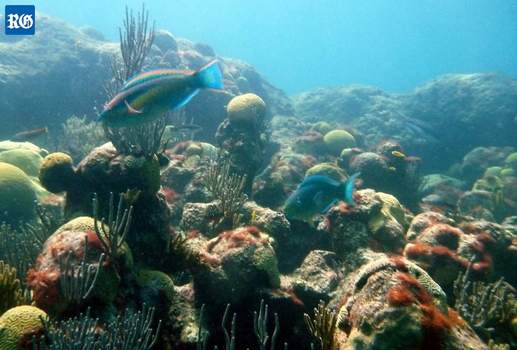Recent News
Micro Forests set to get biggerSaturday, August 27, 2022
More microforests are set to appear around the island as a Bermuda Zoological Society project to plant more trees and shrubs continues to grow.
The BZS Awards Four Students Environmental Science Scholarships
Wednesday, August 24, 2022
Four Bermudian students have been awarded a combined $15,000 in educational funds as part of the Bermuda Zoological Society’s (BZS) annual BZS Steinhoff programme. Osei Agyapong, Imogen Peckett, Logan Soares and Naphisa Smith were selected for their academic achievements and their commitment to protecting the environment.
From Block Island to Montauk Through Sharks, Currents and Cramps
Tuesday, August 23, 2022
Lori King of Long Island finished a nearly 24-mile trip in 8 hours 39 minutes 45 seconds. Once her swim is certified, King will be recognized as the first person to complete the journey.
Hamilton Lions pump up the cash for local charities
Wednesday, July 06, 2022
Two charities reaped $11,000 each thanks to an enduring fundraiser by Hamilton Lions Club.
The proceeds from the club’s 53rd annual Gas-O-Rama and raffle draw were presented to Vision Bermuda and the Bermuda Zoological Society.
Aspen Plants First Red Mangroves on Trunk Island
Wednesday, June 22, 2022
On Friday 3rd June, employees from Aspen were excited to plant the first young red mangrove trees in their sponsored Coastal Red Mangrove Forest on Trunk Island – the Bermuda Zoological Society’s (BZS) ‘Living Classroom’.
About
GovernanceAbout Us
Newsletter
Latest News
Gift & Bookstore
Contact
General Inquiries
info@bzs.bm
Latest News
All the latest updates and news from the Bermuda Aquarium, Museum, and Zoo, one of Bermuda's leading visitor attractions!
Sarah Lagan
Published May 17, 2018 at 8:00 am (Updated May 17, 2018 at 7:58 am)

Predatory fish numbers are at critically low levels, a new report has warned.
Major marine predators including groupers and snappers are endangered, a scientist has warned.
Thaddeus Murdoch, chief scientist at the Bermuda Reef Ecosystem Assessment and Mapping programme, added that if the problem is not dealt with, it is “highly likely” the island’s reef system will erode away.
Dr Murdoch explained that Bermuda’s low predator count had led to an explosion in the number of coral-killing damselfish, whose population has doubled in the area since 2010.
He added that had reduced reef quality across an area bigger than Bermuda’s landmass.
Dr Murdoch said: “Large predators like black grouper carry out important work by managing the numbers of small and large parrotfish on the reef.
“Smaller predatory fishes such as red hind, coney and grey snappers do much more than just provide a source of food, as they keep coral-killing damselfish from increasing and causing damage to reefs.”
He added: “Bermuda’s coral reefs protect the island, give us food and provide exciting experiences for locals and tourists alike.
“However, our reefs, along with those across the world, face destruction from an increasingly acidic ocean and increasingly violent storms.
“Our reefs can face these serious threats, but only when predatory fishes like grouper and snapper, as well as plant-eating fish like parrotfish and surgeonfish, are abundant, marine seaweeds are sparse, and hard corals are healthy.”
Dr Murdoch said: “We oversee the condition of our reefs as if they are primarily a fisheries concern. Reef condition is a tourism and coastal protection issue, and should be managed accordingly.”
He was speaking after the release of a report into the health of the island’s reefs and fish population in 2016 was released.
The report was prepared by Dr Murdoch and a team of researchers through the Bream programme.
Dr Murdoch said Bermuda could restore the predatory fish population by restrictions on the commercial and recreational catch of groupers and snappers and a limit on the sale of predators during spawning season. He added an expansion of the seasonal prohibition and increase in protected spawning areas where necessary, as well as improved marine resource enforcement would also help.
Dr Murdoch said: “Our centuries-old Bermuda reef fishery, and the multigenerational livelihoods that it provides, can only persist if we maintain the numbers of our breeding groupers and snappers.
“If we fail to protect our fish and coral reefs, then bigger waves will hit the shore, and our beaches will change from pink sand to rocky rubble.”
The report contained information collected from 2004 to 2011 and compared it to updated data collected by a fresh survey of the reefs in 2015 and 2016 by Dr Murdoch and his team.
Bream measured the amount of corals, marine plants, plant-eating fish and predatory fish at 38 reefs.
The Department of Environment and Natural Resources did not respond to a request for comment.
The Bream report is available at www.bermudabream.org


